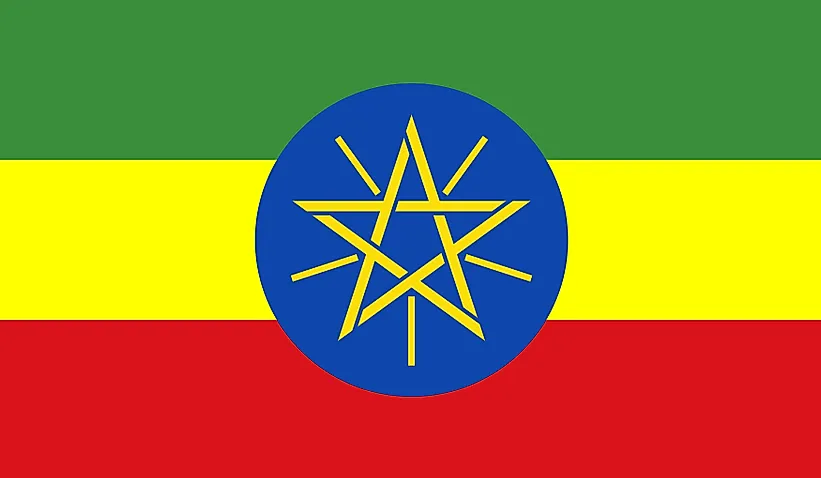
Ethiopia
| Continent | Africa |
| Capital | Addis Ababa |
| Population | 102,374,044 |
| GDP | $175.00 Billion |
| GDP per Capita | $1,900 |
| Dialing Code | +251 |
| ISO Code (2-letter) | ET |
| ISO Code (3-letter) | ETH |
Ethiopia Landscapes






About Ethiopia
Welcome to Ethiopia, a nation that combines ancient civilization with remarkable natural diversity in the Horn of Africa. With approximately 117 million people occupying 1,104,300 square kilometers, Ethiopia stands as Africa’s oldest independent country, creating a unique blend of historical heritage and cultural richness.
Geographic Features and Natural Beauty
Ethiopia’s geography features extraordinary diversity, from the Danakil Depression (one of the world’s lowest and hottest places) to the Simien Mountains reaching over 4,500 meters. The country’s dramatic landscapes include the Great Rift Valley, vast highlands, and numerous rivers including the Blue Nile.
The Simien Mountains National Park, a UNESCO World Heritage site, showcases dramatic peaks and rare wildlife, including the Ethiopian wolf and Gelada baboon. The Danakil Depression presents otherworldly landscapes of colorful mineral formations and active volcanoes.
The country’s varied altitude creates multiple climate zones, supporting diverse ecosystems from alpine heights to tropical lowlands. Lake Tana, the source of the Blue Nile, hosts ancient monasteries on its islands and peninsulas.
Cultural Heritage and Traditions
Ethiopian culture represents one of the world’s oldest civilizations, with its own unique alphabet and calendar. The country’s Orthodox Christian tradition dates back to the 4th century, while Islam also has deep historical roots. The rock-hewn churches of Lalibela demonstrate remarkable architectural achievement.
Traditional arts include distinctive Christian iconography, manuscript illumination, and crosses. Ethiopian cuisine, centered around injera bread and spiced dishes, has influenced culinary traditions throughout the Horn of Africa. The coffee ceremony, originating in Ethiopia, remains an important social ritual.
Music and dance traditions vary among Ethiopia’s numerous ethnic groups, each maintaining distinctive styles and instruments. The country’s literary tradition includes the ancient Ge’ez language and rich oral heritage.
Historical Journey
Ethiopia’s history spans from early human origins (including Lucy, the famous australopithecine) through ancient Axumite civilization to the modern era. The country successfully resisted European colonization, maintaining its independence except for a brief Italian occupation (1936-1941).
The ancient Kingdom of Aksum, one of the world’s great civilizations, left remarkable monuments and traditions. Recent decades have seen significant economic development and modernization while preserving cultural heritage.
Modern Economic Landscape
Today’s Ethiopia has one of Africa’s fastest-growing economies, focusing on agriculture, manufacturing, and services. The country is Africa’s largest coffee producer and has significant potential in renewable energy, particularly hydroelectric power.
Recent development initiatives include major infrastructure projects and industrial parks. The country’s young population and growing urban centers support continued economic transformation.
International Relations and Global Position
Ethiopia maintains significant influence in African affairs, hosting the African Union headquarters. The country plays crucial roles in regional security and development initiatives.
Did You Know?
• Ethiopia is considered the birthplace of coffee?
• The country uses a unique calendar with 13 months?
• The Danakil Depression contains some of Earth’s most extreme environments?
• Ethiopia has never been colonized, except for a brief Italian occupation?
Conclusion
Ethiopia represents an extraordinary combination of ancient heritage and modern development. From its rock-hewn churches to its modern cities, from its highland peaks to its desert lowlands, Ethiopia continues to evolve while maintaining its remarkable cultural legacy. As it addresses contemporary challenges including sustainable development and regional cooperation, Ethiopia remains committed to its path of growth while preserving its unique historical and cultural identity.